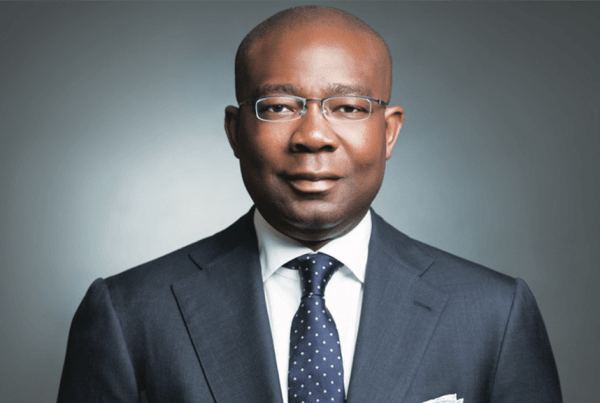By Aigboje Aig-Imoukhuede, Co-Chairman, GBCHealth
Health has consistently been a major challenge for many African nations where child and maternal mortality rates remain high (two times higher than the global average) and life expectancy remains low, specifically 13 years below the global average.
Everyone should have access to good healthcare, no matter his or her race or where they live. The inequality in healthcare for Africans in Africa and their counterpart in developed countries, as well as variations in income groups and socioeconomic categories within Africa is unacceptable, pervasive and needs to be addressed. These inequalities are a reflection of the weak healthcare system arising from factors such as severe shortages of suitably qualified health workers, limited availability of quality medicines, and limited use of latest technology to improve access to healthcare. I believe that ABCHealth will be key to shifting the needle towards universal health care for Africans.
Africa needs to build sustainable health systems and one effective way to do this is through collaborations with its private sector. By leveraging its resources, expertise, networks, infrastructure and assets, private sector can focus on innovation for new technologies, systems and processes; influence policy, and form partnerships that will have continent wide impact on the population’s health.
“By fixing health, we fix Africa!” An appropriate, robust and sustainable model for improvements in health system performance is essential in order to reverse the declining trends in health and development status and break the vicious cycle of poverty and ill-health in Africa. The private sector’s collaboration with the government has the potential to birth new innovative solutions to accelerate progress in the wellbeing of African.
With the insights I have gained as an African focused entrepreneur and manager, I know that we cannot leave responsibility for a healthy African population to government alone – it will be overwhelming. Africa’s private sector with its rapidly growing power and influence must be encouraged to collaborate with the public sector and fix our health sector.
There is excellent incentive for private sector participation in the business of health – Africa’s population is expected to hit two billion by 2050. This is a huge market with potential to drive Africa’s economic prosperity into the next century, but this prosperity cannot be guaranteed if we do not ensure the health of these people by the actions we take today.
Africa has come of age. Many African countries today are blessed with business leaders who have what it takes to make the big difference in Africa’s health space. Africa accounts for the bulk of global disease burden, yet we remain dependent on imported medicines, technologies and external capital. There is much progress that we can stimulate by addressing health access through our own workplace policies and programs. It is time for African private sector to step up to the plate. Collaboration between the public and private sectors will unlock opportunities that will ultimately impact Africa’s economic growth and make quality healthcare available to all.
The Africa Business Health Forum in Addis Ababa will launch ABCHealth as an African led coalition that will mobilize a core group of private sector champions, to advance health outcomes and shape health markets across Africa. It will showcase the range of high impact business opportunities available across the continent, establish new market-based innovative financing vehicles for health; and leverage technology for high impact health outcomes among other things.
Together, we will birth productive collaborations and revolutionary approaches to take on health in Africa.






